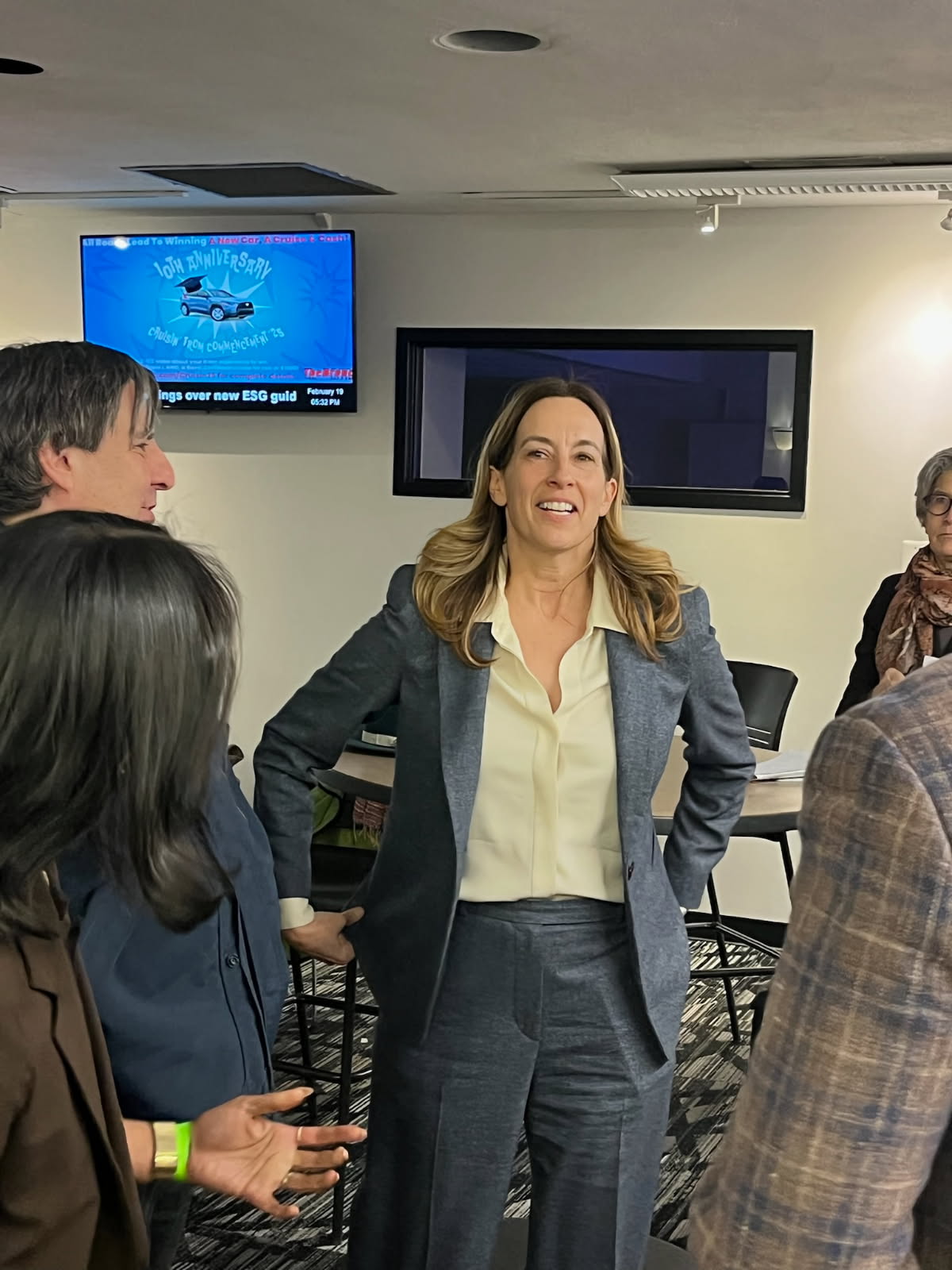
LAWRENCEVILLE – As delegates walked into Wednesday night’s Mercer County convention at Rider University, they were greeted by Steve Fulop.
He, of course, is a candidate for governor, but he wasn’t taking part in the convention.
That’s because he says it wasn’t fair.
After all, Janice Mironov, the county’s Democratic chair, had endorsed Mikie Sherrill. Fulop put it thusly in a letter he was handing out.
“If this were to be a fair and open convention, the chairwoman would not have put her thumb on the scale prior to the convention, but instead would have allowed an open process that was balanced and allowed all to participate in the Zoom call prior – but that was not the case.” He said Mercer’s political leadership was “moving backwards.”
Another candidate, Ras Baraka, expressed similar feelings. He, too, complained about some party leaders manipulating the process.
Baraka, however, took part in the convention – as did Sherrill and Sean Spiller.
Absent, along with Fulop, were Josh Gottheimer and Steve Sweeney.
A 3-person convention when there are six candidates seemed a bit odd. But with more than 400 committee members in the room, it went on.
Party officials used a new voting method. No more paper ballots and no more voting machines.
Each voter was sent a link with an unique password that allowed them to cast votes on their phones or tablets.
There was a dry run when voters were asked to cast ballots for their favorite ice cream among a handful of choices.
When the real voting began, Sherrill relied on her military background, saying it helped her develop “toughness,” and that she has been trained to solve problems.
Baraka said he’s the “real” Democrat in the room – and in the race.
“I’m not meandering in the middle,” is how he put it.
Spiller, the head of the teachers’ union, pledged to fight for working people.
The result, interestingly, was similar to what we saw a week or so ago in Hunterdon County.
Sherrill won, but Baraka was a fairly strong second.
“Two down,” the congresswoman said afterwards.
She was asked about the suggestion that some of the conventions are not truly fair.
“Each county determines its convention rules,” she said. “I’m going to compete everywhere.”‘
Sherrill said that includes Bergen County and counties in South Jersey where she may not figure to have widespread support.
The next Democratic convention is Saturday in Monmouth County.
And if you are wondering about the ice cream vote, the winner was chocolate, chocolate chip.
(Visited 100 times, 100 visits today)
Sherrill’s Opponents Express Discontent with Convention Process
The recent New Jersey Democratic Convention has sparked controversy and discontent among opponents of Mikie Sherrill, the incumbent Congresswoman representing the state’s 11th district. Sherrill, a former Navy pilot and federal prosecutor, has been a rising star in the Democratic Party since her election in 2018. However, her opponents are now questioning the fairness and transparency of the convention process that led to her endorsement for re-election.
The convention, which took place virtually due to the ongoing COVID-19 pandemic, saw Sherrill receive the official endorsement of the Democratic Party in a landslide vote. While this may seem like a victory for Sherrill, her opponents argue that the process was rigged in her favor and did not allow for a fair competition.
One of the main points of contention is the lack of in-person voting at the convention. Many opponents believe that the virtual format favored Sherrill, who already had a strong presence and support base online. They argue that in-person voting would have allowed for a more democratic and transparent process, where delegates could openly express their preferences without fear of manipulation or coercion.
Additionally, some opponents have raised concerns about the timing of the convention, which took place just weeks before the primary election. They argue that this rushed timeline did not give them enough time to campaign and build support among delegates, further disadvantaging them in the endorsement process.
Despite these criticisms, Sherrill’s supporters maintain that the convention was conducted fairly and in accordance with party rules. They point to her strong record of accomplishments in Congress, including her work on healthcare, infrastructure, and national security issues, as reasons for her endorsement.
As the primary election approaches, it remains to be seen how this controversy will impact Sherrill’s re-election campaign. While she may have secured the party’s endorsement, the discontent among her opponents could galvanize them to work even harder to unseat her in November.
Overall, the dissatisfaction with the convention process highlights the importance of transparency and fairness in political endorsements. It serves as a reminder that democracy thrives when all voices are heard and respected, regardless of party affiliation or incumbency.



